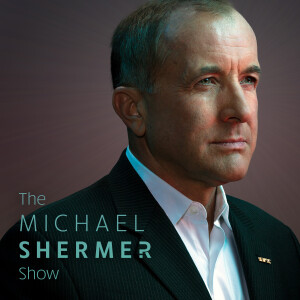
63. Dr. Hector A. Garcia — Sex, Power, and Partisanship: How Evolutionary Science Makes Sense of Our Political Divide
 2019-04-24
2019-04-24
Through the lens of evolutionary science, Dr. Garcia offers a novel perspective on why we hold our political ideas, and why they are so often in conflict. Drawing on examples from across the animal kingdom, Garcia reveals how even the most complex political processes can be influenced by our basic drives to survive and reproduce—including the policies we back, whether we are liberal or conservative, and whether we are inspired or repelled by the words of a president. Garcia explains how our political orientations derive from an ancestral history of violent male competition, surprisingly influencing how we respond to issues as wide-ranging as affirmative action, women’s rights, social welfare, abortion, foreign policy, and even global warming. Critically, Garcia shows us how our instinctive political tribalism can keep us from achieving stable, functioning societies, and offers solutions for rising above our ancestral past. Dr. Garcia and Dr. Shermer also discuss:
Trump and other political leaders through the lens of evolutionary psychology what ancient fears Trump evokes when he says foreigners are bringing in disease and threaten our safety why people tend to prefer politicians who are taller, better looking, and with broader shoulders how liberals and conservatives differ in temperament and personality and how this difference plays out in public policy the moralistic fallacy and the naturalistic fallacy the authoritarian personality and social dominance theory why the Left-Right/Liberal-Conservative political spectrum is universal and what deep preferences it represents how women and men differ in cognitive styles of thinking, preferences, and career choices how PTSD as a real phenomena, especially among returning veterans, but why normal anxiety should not be considered pathologicalHector A. Garcia, Psy.D., is the author of Alpha God: The Psychology of Religious Violence and Oppression. He is an assistant professor in the department of psychiatry at the University of Texas Health Science Center at San Antonio, and a clinical psychologist specializing in the treatment of posttraumatic stress disorder in combat veterans. He has published extensively on evolutionary psychology, stress and politics in organizations, and the interplay between war and masculine identity.
Listen to Science Salon via iTunes, Spotify, Google Play Music, Stitcher, iHeartRadio, TuneIn, and Soundcloud.
This Science Salon was recorded on February 25, 2019.
You play a vital part in our commitment to promote science and reason. If you enjoy the Science Salon Podcast, please show your support by making a donation, or by becoming a patron.
More Episodes
Create your
podcast in
minutes
- Full-featured podcast site
- Unlimited storage and bandwidth
- Comprehensive podcast stats
- Distribute to Apple Podcasts, Spotify, and more
- Make money with your podcast
It is Free
- Privacy Policy
- Cookie Policy
- Terms of Use
- Consent Preferences
- Copyright © 2015-2024 Podbean.com





